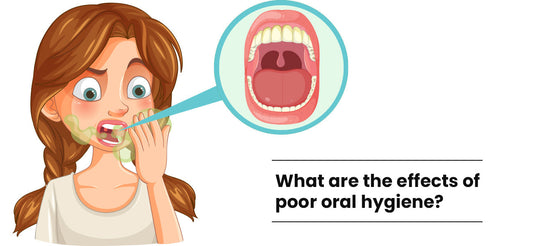In today’s time, where juggling work, family, and social life can feel like running a marathon, men’s health often takes a backseat. Skipping meals for meetings, bingeing on late-night snacks, or postponing fitness goals to “next Monday” are all-too-familiar scenarios. But here's the truth: building a healthy lifestyle for men doesn’t mean giving up your favorite foods or spending hours at the gym. It is about smart choices that integrate into your routine and support long-term wellness.
In this blog, we focus on bridging the gap between gym and kitchen with actionable steps that prioritize nutrition for fitness and ensure optimal health and wellness.
Why Men’s Health Needs a Balanced Approach
Lifestyle diseases like diabetes, hypertension, and obesity are on the rise, especially among men in their 30s and 40s. While many focus on exercise as a solution, they often overlook the critical role of healthy eating for men. Nutrition and fitness are two sides of the same coin; one complements the other. Together, they form the foundation of optimal wellness.
Nutrition for Fitness: The Key to Optimal Wellness
A balanced diet is crucial for energy, recovery, and overall well-being. Here is how you can structure your nutrition plan for maximum benefits:
1. Prioritize Protein-Rich Foods
Protein is the cornerstone of any fitness and wellness plan. It aids in muscle repair, supports metabolism, and keeps you full for longer (1). Diets often lack sufficient protein, so it is essential to include foods like:
• Eggs, chicken, and fish.
• Paneer, tofu, and lentils.
• Nuts, seeds, and Greek yogurt.
How to incorporate protein into your day:
• Start your morning with scrambled eggs or a protein shake.
• Add a portion of grilled chicken or paneer to your lunch.
• Snack on roasted chana or nuts during the evening.
2. Healthy Carbs for Energy
Carbohydrates are your body’s primary energy source, especially during workouts. (7) Choosing the right carbs can prevent energy crashes and keep you feeling active throughout the day. Opt for complex carbs such as:
• Quinoa, rice, or millets (ragi, bajra).
• Sweet potatoes.
• Whole grain bread and oats.
3. Fats: The Unsung Hero
Healthy fats play a vital role in hormone production, particularly testosterone(2), which is crucial for muscle growth and overall vitality.
Sources of healthy fats:
• Avocados, almonds, and walnuts.
• Fatty fish like salmon and mackerel.
• Olive oil, coconut oil or ghee in moderation.
Avoid trans fats predominantly found in fried and processed foods. Instead, opt for natural sources to support heart and brain health.
4. Micronutrients: The Silent Boosters
While macronutrients (protein, carbs, fats) take center stage, micronutrients like vitamins and minerals are equally important. Deficiencies in nutrients like zinc, magnesium, and vitamin D can impact energy levels, immunity, and even mood.
To ensure adequate intake:
• Include leafy greens like spinach and methi in your meals.
• Add nuts and seeds for magnesium and healthy oils.
• Spend 15-20 minutes in sunlight daily for vitamin D.
5. Hydration: The Forgotten Essential
Dehydration can lead to fatigue, reduced focus, and even hinder workout performance (3). Indian summers can be particularly harsh, making hydration even more critical.
Tips to stay hydrated:
• Drink at least 3 liters of water daily.
• Include coconut water, herbal teas, or lime water for electrolytes.
• Limit sugary drinks and sodas that can cause energy crashes.
Meal Timing Matters
Timing your meals correctly can make a big difference in your energy levels and recovery (4). Here’s how to structure your day for optimal health:
-
Morning:
A protein and fiber-rich breakfast, such as oats with nuts and a boiled egg, sets the tone for the day.
-
Mid-Morning:
A small snack, like a fruit or a handful of nuts, prevents energy dips.
-
Lunch:
A balanced plate with carbs, proteins, and vegetables fuels your afternoon activities.
-
Evening Snack:
A light snack like roasted chana or peanuts keeps hunger at bay without overloading calories.
-
Dinner:
Keep it light but nutrient-dense with grilled fish or paneer and a side of sautéed vegetables.
-
Bedtime:
A glass of warm milk with turmeric promotes better sleep and recovery.
Common Nutrition Challenges and Tips to Overcome Them
1. Lack of Time
Many men skip meals or grab unhealthy options due to busy schedules.
Solution:
• Meal prep on weekends to ensure quick, healthy meals during the week.
• Keep healthy snacks like fruits, nuts, seeds or protein bars handy.
2. Social Gatherings
Eating out with friends or family often leads to overindulgence.
Solution:
• Opt for grilled, baked or roasted dishes instead of fried foods.
• Balance indulgent meals with lighter choices the next day.
3. Cravings for Unhealthy Foods
Late-night snacks or sugary treats can derail your diet.
Solution:
• Replace chips or biscuits with roasted makhana or fruit.
• Opt for dark chocolate (70% cocoa or more) to satisfy sweet cravings.
The Importance of Lifestyle Habits in Men’s Wellness
In addition to a proper diet, these lifestyle changes can enhance your journey toward optimal health and wellness:
-
Prioritize Sleep:
Lack of sleep affects everything from energy levels to metabolism (5). Aim for 7–9 hours of quality sleep every night.
-
Manage Stress:
Stress can increase cortisol levels, which interfere with muscle recovery and fat metabolism (6). Practice mindfulness or yoga to manage daily stress.
-
Stay Active:
If hitting the gym is challenging, stay active with simple activities like walking, taking the stairs, or playing a sport.
When you integrate proper nutrition and healthy habits into your routine, the benefits extend beyond physical appearance:
• Reduced risk of lifestyle diseases like diabetes, high cholesterol, and heart problems.
• Improved energy levels to handle work and family commitments.
• Better mental clarity and reduced stress.
In the journey of men’s health, the kitchen plays as big a role as the gym. While workouts sculpt your body, balanced nutrition lays the foundation for energy, recovery, and overall vitality. The goal is not to follow fad diets or unsustainable routines but to create a healthy lifestyle for men that integrates seamlessly into their daily lives.
Remember, it is the small, consistent efforts like choosing a bowl of dalia over fried snacks, hydrating adequately, and sleeping well, that add up to significant long-term gains. So, start today. Your body, mind, and future self will thank you!
References
-
Carbone, J. W., & Pasiakos, S. M. (2019). Dietary Protein and Muscle Mass: Translating science to application and health benefit. Nutrients, 11(5), 1136. https://doi.org/10.3390/nu11051136
-
Fantus, R. J., Halpern, J. A., Chang, C., Keeter, M. K., Bennett, N. E., Helfand, B., & Brannigan, R. E. (2019). The Association between Popular Diets and Serum Testosterone among Men in the United States. The Journal of Urology, 203(2), 398–404. https://doi.org/10.1097/ju.0000000000000482
-
Carlton, A., & Orr, R. M. (2015). The effects of fluid loss on physical performance: A critical review. Journal of Sport and Health Science/Journal of Sport and Health Science, 4(4), 357–363. https://doi.org/10.1016/j.jshs.2014.09.004
-
Lopez-Minguez, J., Gómez-Abellán, P., & Garaulet, M. (2019). Timing of breakfast, lunch, and dinner. Effects on obesity and metabolic risk. Nutrients, 11(11), 2624. https://doi.org/10.3390/nu11112624
-
Sharma, S., & Kavuru, M. (2010c). Sleep and Metabolism: An Overview. International Journal of Endocrinology, 2010, 1–12. https://doi.org/10.1155/2010/270832
-
Rabasa, C., & Dickson, S. L. (2016). Impact of stress on metabolism and energy balance. Current Opinion in Behavioral Sciences, 9, 71–77. https://doi.org/10.1016/j.cobeha.2016.01.011
- Gollnick PD, Matoba H. Role of carbohydrate in exercise. Clin Sports Med. 1984 Jul;3(3):583-93. PMID: 6571232.






